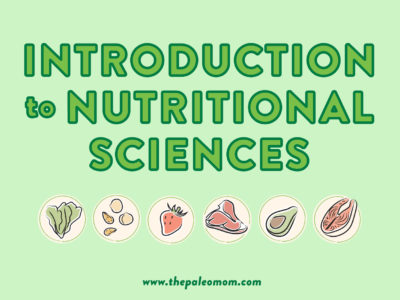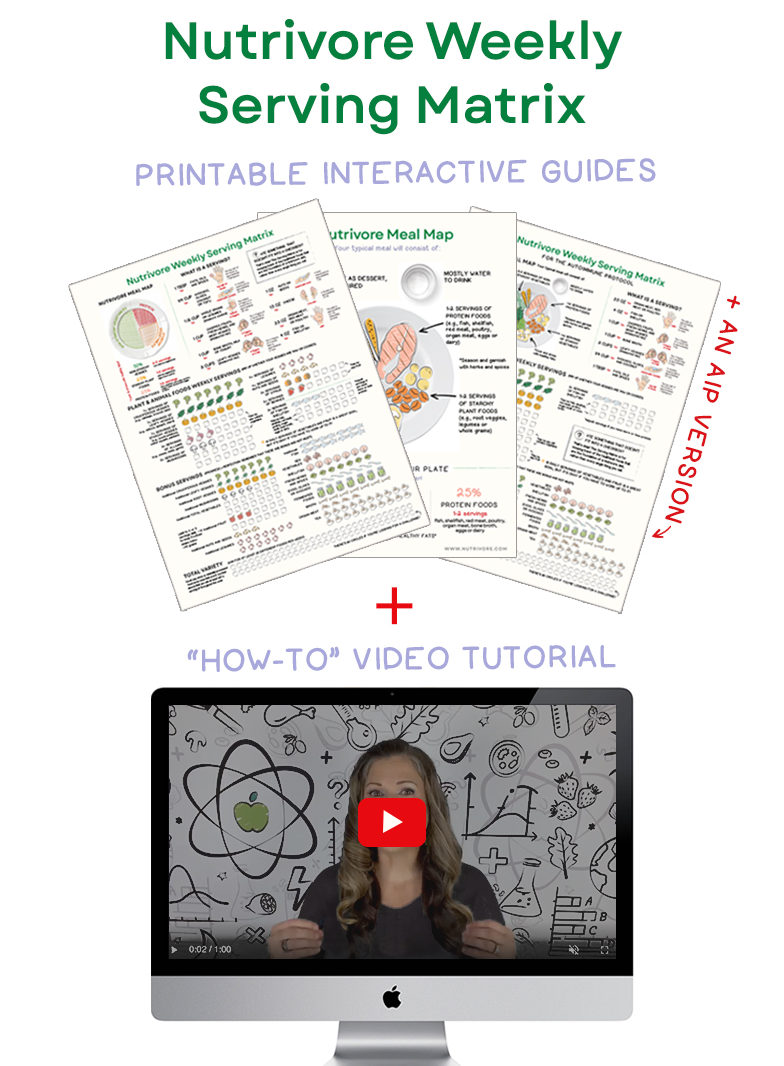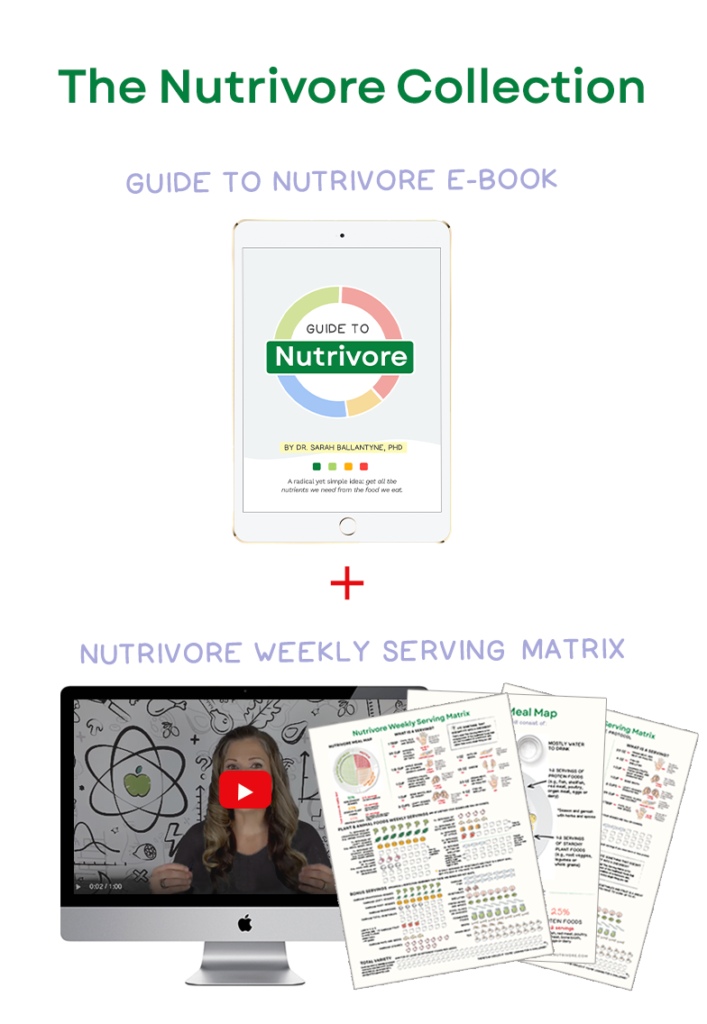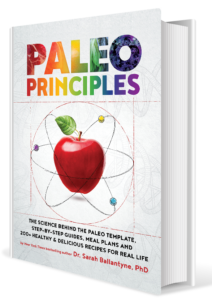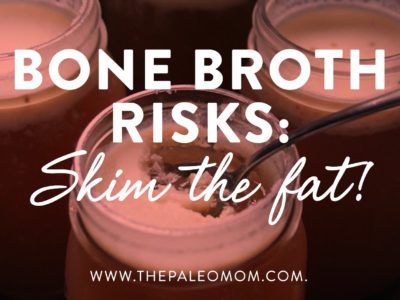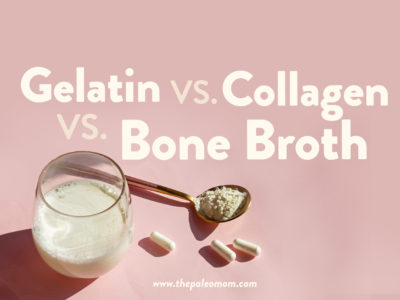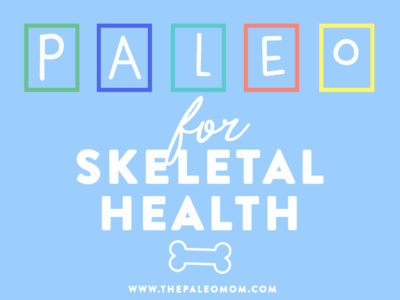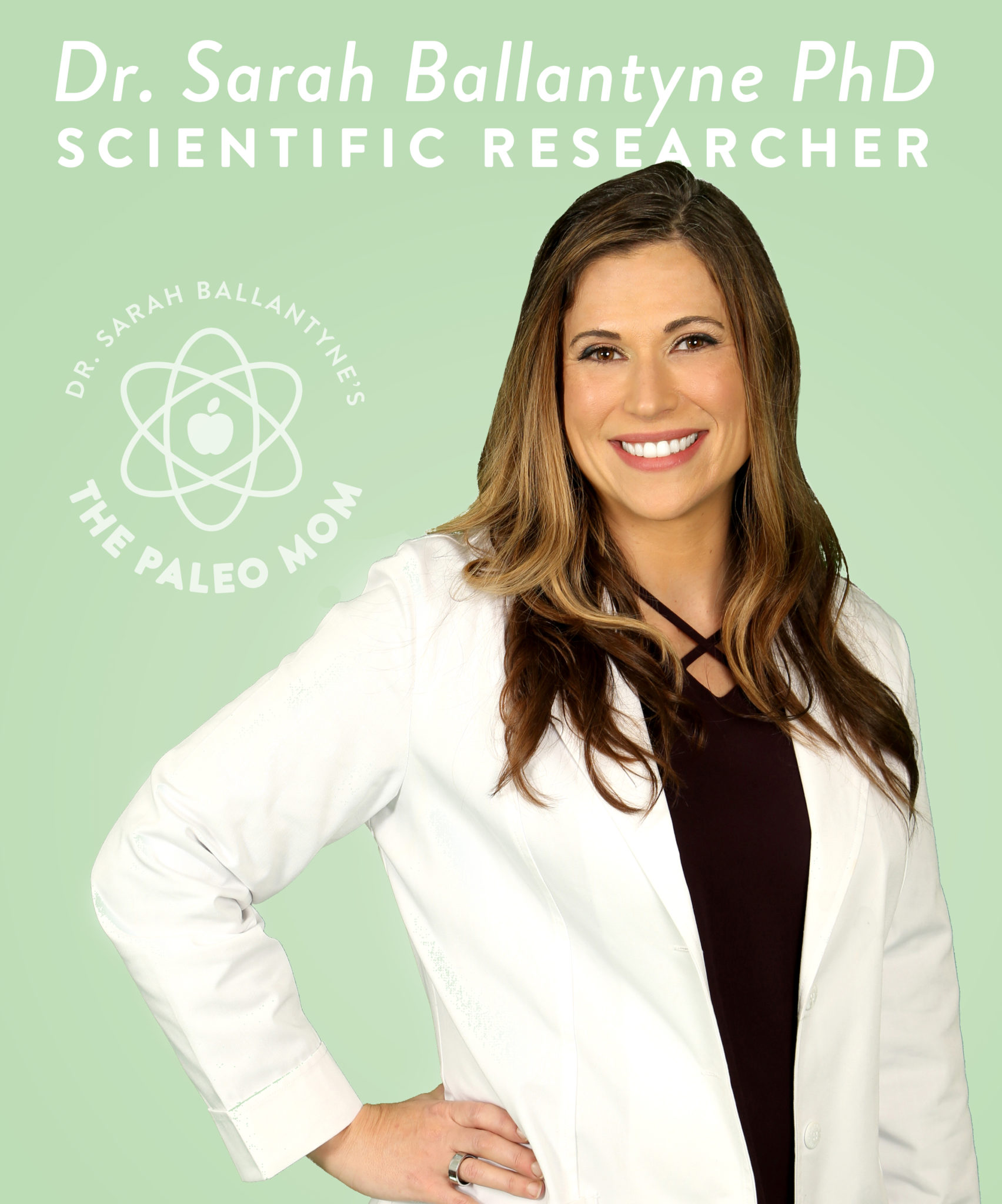 I made a rule for myself when I first launched this website nearly 8 years ago. I would not make any recommendation that I couldn’t back up with scientific evidence. And even more rigorously, I would let the body of scientific literature inform my recommendations (rather than seeking the handful of studies that conform to my beliefs).
I made a rule for myself when I first launched this website nearly 8 years ago. I would not make any recommendation that I couldn’t back up with scientific evidence. And even more rigorously, I would let the body of scientific literature inform my recommendations (rather than seeking the handful of studies that conform to my beliefs).
My respect and high-valuation of science comes from my training as a scientist. I have a PhD in medical biophysics and performed medical research in some of the most highly-respected academic laboratories in the world, published in top-tier journals, and earned a variety of awards for research excellence. My health forced me to pursue a different career path than the one I worked so hard towards, but that training is invaluable in what I do now: distilling the scientific evidence pertaining to diet, lifestyle and health into actionable information for you.
I spend large portions of my day reading through the scientific literature, trying to understand not just one individual study but the collection of studies on a topic, where the data informs a consensus and where conflicting results indicate nuance and context (and only occasionally a poorly-designed study). As someone who spent years in a research lab, I understand what goes into these studies, the power and the limitations of different methodologies, how different measurements reinforce each other to prove or disprove an hypothesis, and what the various statistical analyses actually mean. That’s why you don’t see me dismissing scientific studies when their conclusions contradict my recommendations and that’s why you see me valuing scientific consensus rather than embracing conspiracy theories.
My personal health journey is the source of my passion for helping you regain your health and keep it. But my training as a scientist is what guides the creation of the educational resources that help you achieve this goal.
I am so grateful and appreciative that you also value scientific evidence, seek the truth rather than the latest fad, want to understand the why’s in addition to the how’s, and engage in a constructive and respectful conversation when the evidence isn’t cut and dried! Thank you for your voice in this community!
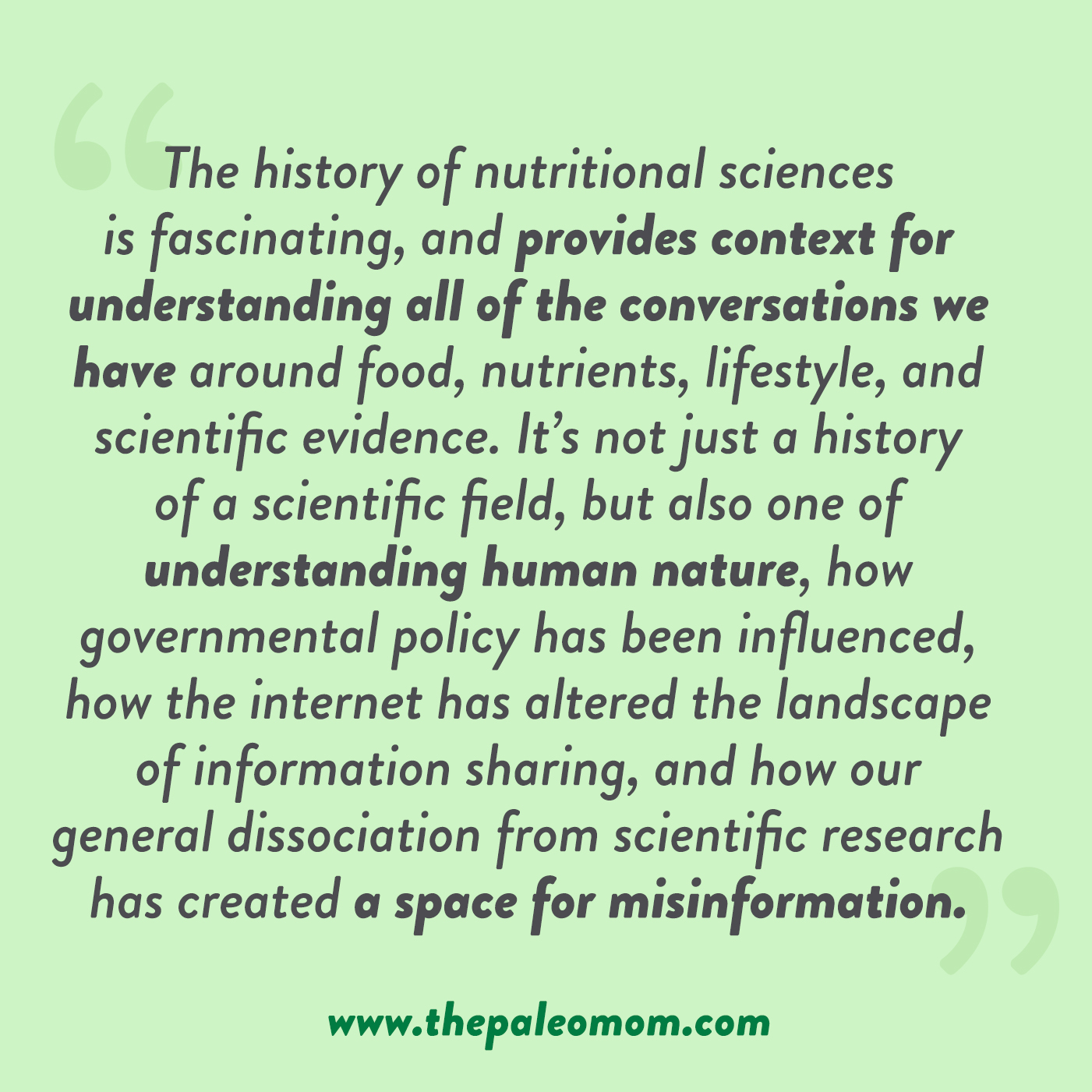 The history of nutritional sciences is fascinating, and provides context for understanding all of the conversations we have around food, nutrients, lifestyle, and scientific evidence. It’s not just a history of a scientific field, but also one of understanding human nature, how governmental policy has been influenced, how the internet has altered the landscape of information sharing, and how our general dissociation from scientific research has created a space for misinformation. It’s more important than ever to be empowered with knowledge and the ability to critically assess claims. A necessary prerequisite for detecting pseudoscience is understanding this history, the value of different types of scientific studies, the meaning of statistical significance, and when science leaves room for interpretation.
The history of nutritional sciences is fascinating, and provides context for understanding all of the conversations we have around food, nutrients, lifestyle, and scientific evidence. It’s not just a history of a scientific field, but also one of understanding human nature, how governmental policy has been influenced, how the internet has altered the landscape of information sharing, and how our general dissociation from scientific research has created a space for misinformation. It’s more important than ever to be empowered with knowledge and the ability to critically assess claims. A necessary prerequisite for detecting pseudoscience is understanding this history, the value of different types of scientific studies, the meaning of statistical significance, and when science leaves room for interpretation.
In short, understanding the current state of nutritional sciences as a research field is key to providing accurate direction for the future. That’s why I’m so excited to announce my new online course!
Announcing the Introduction to Nutritional Sciences Online Course!
In this online course, I examine the history of nutritional sciences and the sources of the flaws in previous dietary guidelines, and discusses the merits and limitations of different types of scientific studies, statistical analyses, and the importance of scientific consensus.
This online course includes 1 1/2 hours of video lecture by Dr. Sarah, including downloadable and printable PDFs of her presentations slides. The topics covered in detail include:
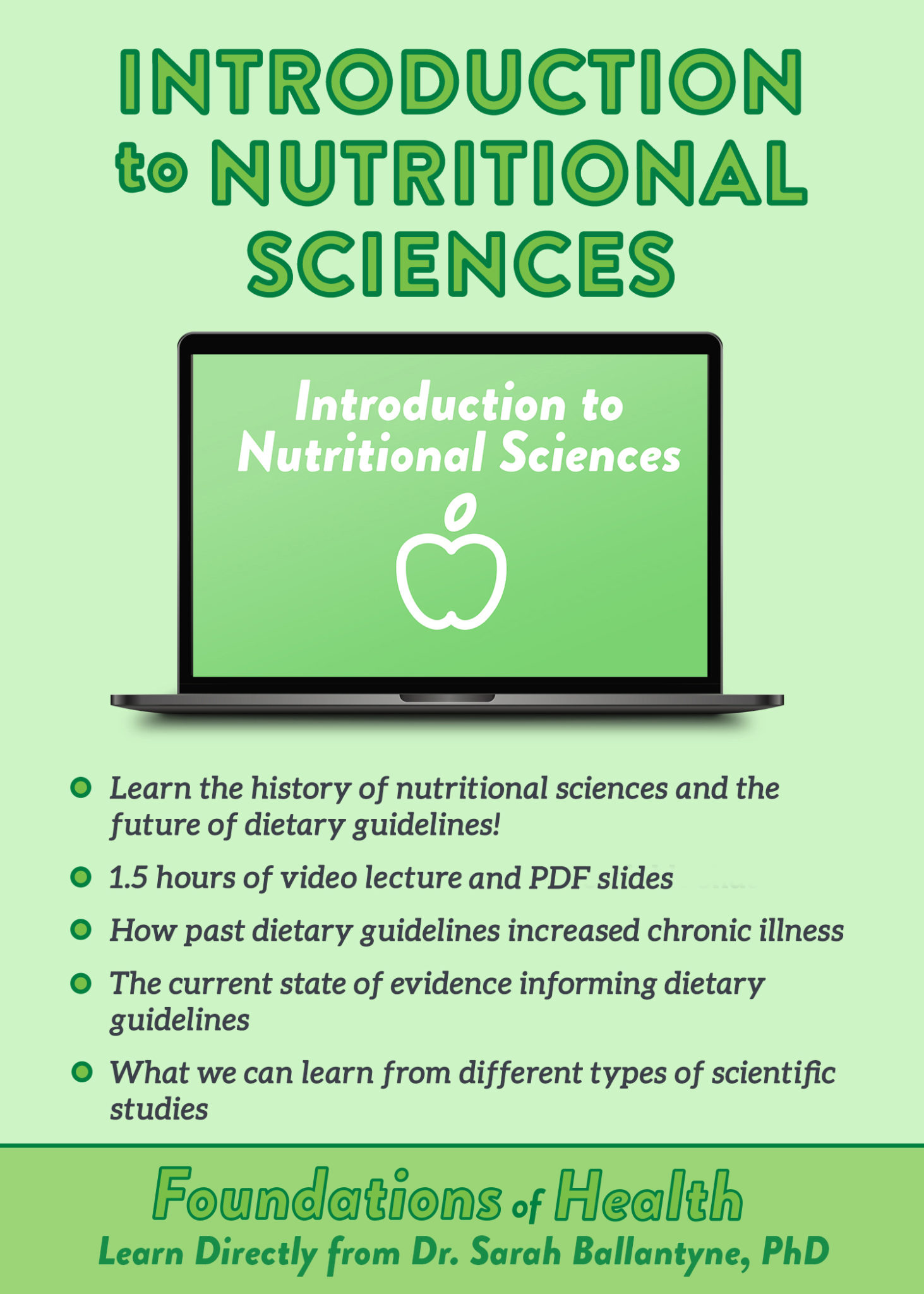 History of nutritional sciences and dietary guidelines
History of nutritional sciences and dietary guidelines- Nutrients vs. special interests
- The rise in chronic illness
- The scientific burden of proof: theory vs. hypothesis
- What we can learn from different types of scientific studies
- The meaning of “statistical significance”
- Scientific consensus vs. cherry picking
Dietary guidelines have failed the public, increasing the incidence of most chronic illnesses rather than decreasing preventable diseases known to be linked to diet and lifestyle choices. To move forward, it helps to understand where we’ve come from, which is why I teach the history of nutritional sciences and how dietary guidelines have been influenced by scientists versus special interests over the last 100 years. In order to emphasize the importance of unbiased integration of scientific research into dietary guidelines of the future, I also explain the meaning of scientific consensus, the weight of the evidence from different types of scientific studies, statistical significance, and the current state of nutritional sciences research.
Nutrivore Weekly Serving Matrix
An easy-to-use and flexible weekly checklist
to help you maximize nutrient-density.
The Weekly Serving Matrix is very helpful! I’ve been eating along these lines but this really helps me know where to focus vs. which foods serve a more secondary role. It’s super helpful and has taken a lot of worry out of my meal planning. Thanks!
Jan
Inform Your Health Journey!
Learn the history of nutritional sciences and the future of dietary guidelines!
Get Instant Digital Access for $49
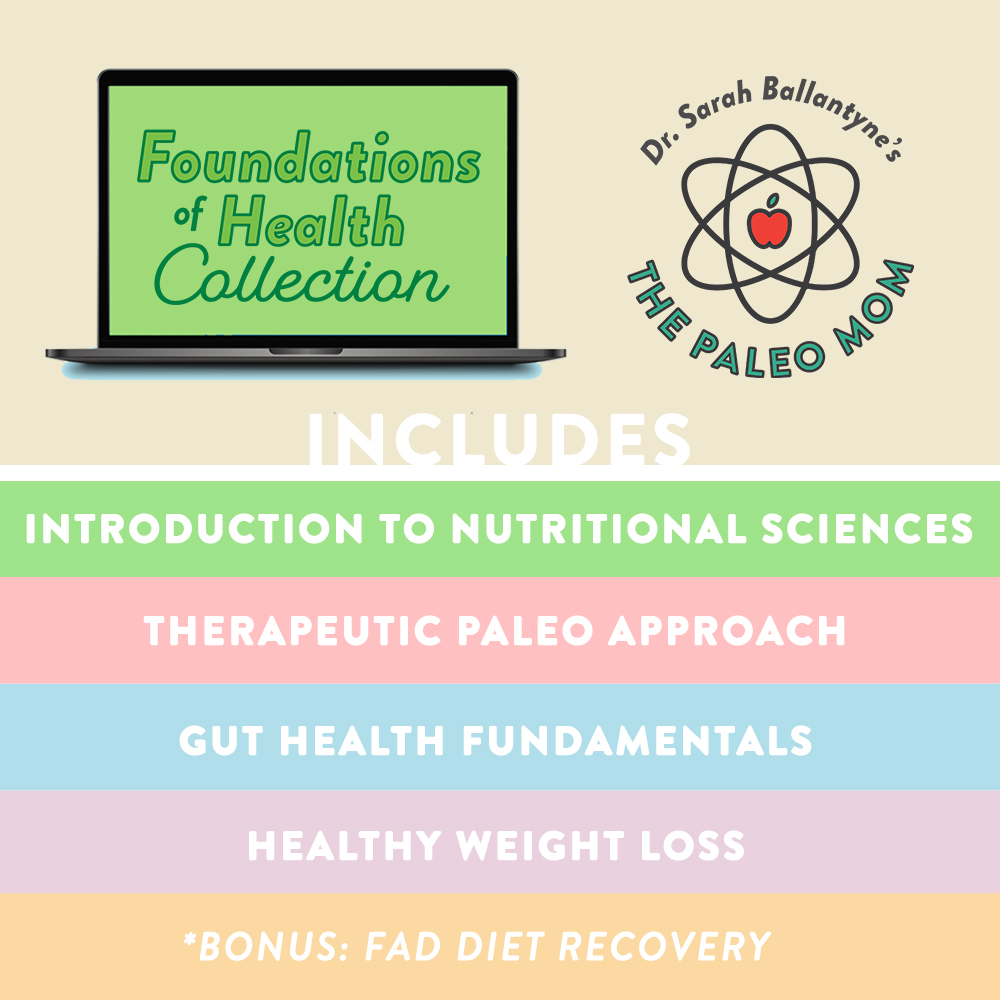 Want an upgrade? Because I know you’re super excited to dive into this enlightening content, I want to mention that you can get all four of my new online courses (Introduction to Nutritional Sciences, Therapeutic Paleo Approach, Healthy Weight Loss, and Gut Health Fundamentals) plus an awesome bonus lecture on Fad Diet Recovery in The Foundations of Health Online Course Collection. This online course collection includes a total of 15 (!) hours of video lecture, including downloadable and printable PDFs of my 650(!) presentations slides.
Want an upgrade? Because I know you’re super excited to dive into this enlightening content, I want to mention that you can get all four of my new online courses (Introduction to Nutritional Sciences, Therapeutic Paleo Approach, Healthy Weight Loss, and Gut Health Fundamentals) plus an awesome bonus lecture on Fad Diet Recovery in The Foundations of Health Online Course Collection. This online course collection includes a total of 15 (!) hours of video lecture, including downloadable and printable PDFs of my 650(!) presentations slides.
Learn more about The Foundations of Health Collection here.

